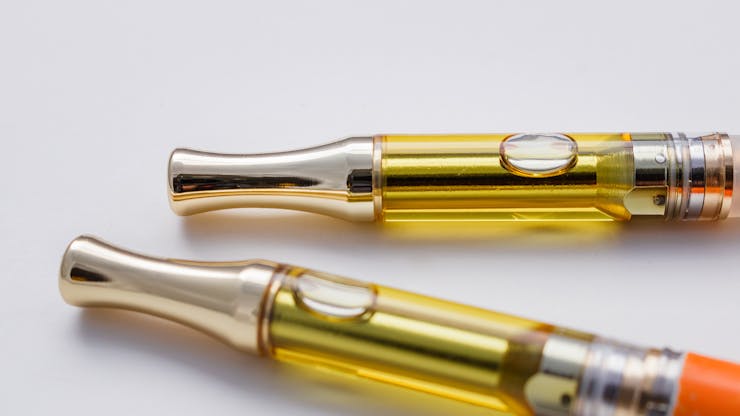As reports of deaths and respiratory illnesses related to vaping rise in the United States, some Canadians are watching with concern, considering that cannabis concentrates and the vapes used to heat and inhale them will be legal in this country before the end of 2019.
That concern is difficult to calm right now because a lot of the questions surrounding the as-yet-unnamed illness just don’t have answers yet, said Ian Culbert, executive director of the Canadian Public Health Association.
“Unfortunately, we don’t know very much,” Culbert said.Get the Latest from Leafly CanadaUp to five deaths and more than 450 illnesses across the US appear to be tied to vaping—specifically, inhaling the vapour from a device that heats up a liquid that contains nicotine or THC and/or CBD.
The cases don’t currently seem to be connected to any particular kind of vaping concentrate or device, and both nicotine-based and cannabis-based vaping products could be involved. The patients are typically young and healthy, and more often men.
The Centres for Disease Control and the Food and Drug Administration are investigating the deaths and illnesses in the United States. There have not yet been similar illnesses seen in Canada, according to Health Canada. Cannabis concentrates for vaping are not yet legal for use or sale in Canada, though they are available via the illicit market.
Vitamin E Acetate
There are some indications that a contaminant—a vitamin E-derived oil—may be the culprit, the Washington Post reported. The chemical has been found in samples of cannabis concentrate vaping products used by some with the illness, the Post reported the FDA as saying.
The contaminant, known as vitamin E acetate, is available as a nutritional supplement and used in topical skin treatments, and it’s not believed to be harmful when used in either of those ways. What is not known is if the substance can cause illness or injury when inhaled or when heated, as it would be when used with a vaping device.
Part of the problem of figuring out what is causing the illnesses is that there are many dimensions to the situation, Culbert said. There is the vape juice or liquid itself, which can contain THC, CBD, nicotine, or some combination of those active ingredients as well as flavourings—and potential contaminants.
Then the fact that the concentrates are heated is another complication. “That’s crucial because chemicals will react differently depending on what temp to which they are heated,” Culbert said. That brings in the devices, a third factor to consider. It’s unclear if they are overheating the concentrates or liquids beyond a safe level, or if they are working as they should.
Ultimately, things are still in the fact-finding stage and it can’t be said for sure if that chemical, or any other, is responsible for the illnesses—or why it would be if it’s the culprit.
Concentrates Legal This Year
That’s troubling news for Canadians ahead of the introduction of legal cannabis concentrates in this country—the regulations come into effect on October 17, a year after cannabis was first legalized, and the products will be available for sale two months later, the government has said.
As of now, Health Canada has warned Canadians that vaping products carry a risk of pulmonary illness, saying that users should watch for symptoms like coughing, shortness of breath, chest pain, nausea, vomiting, and diarrhea.
The situation is being watched closely by the public health agency as well as the provinces, Culbert said. In Alberta, the illness has been made a notifiable disease, which means any suspected cases have to be reported.
In the lead up to the legal release of cannabis concentrates for vaping, it’s important for Canadians to be aware that any such products they may be using now are outside of the legal market.
“If you are vaping THC, know that that’s an illegal product, an unregulated product,” Culbert said. Such products haven’t been tested for contaminants or safety, he said, or for strength.
Products on the legal market will be subject to testing and regulation, but there is no guarantee we’ll know what is causing these illnesses by then or how cannabis concentrates fit into that.
For those who intend to use the legal cannabis concentrates when available, the “start low, go slow” advice for general cannabis use makes sense here as well, Culbert said, particularly because using cannabis via vape can affect everyone differently.
“Even different from inhaling a burnt cannabis product, the vaping experience is going to be different so you need to learn how your body is going to respond to it gradually before you increase the levels of consumption or the strength of the product that you’re using,” Culbert said.
In addition, only buy cannabis concentrates for vaping from legal, regulated sources, he said, and do the same for vaping devices—which should not be altered or augmented in any way that changes their operation.
“Let common sense be your guide.”





